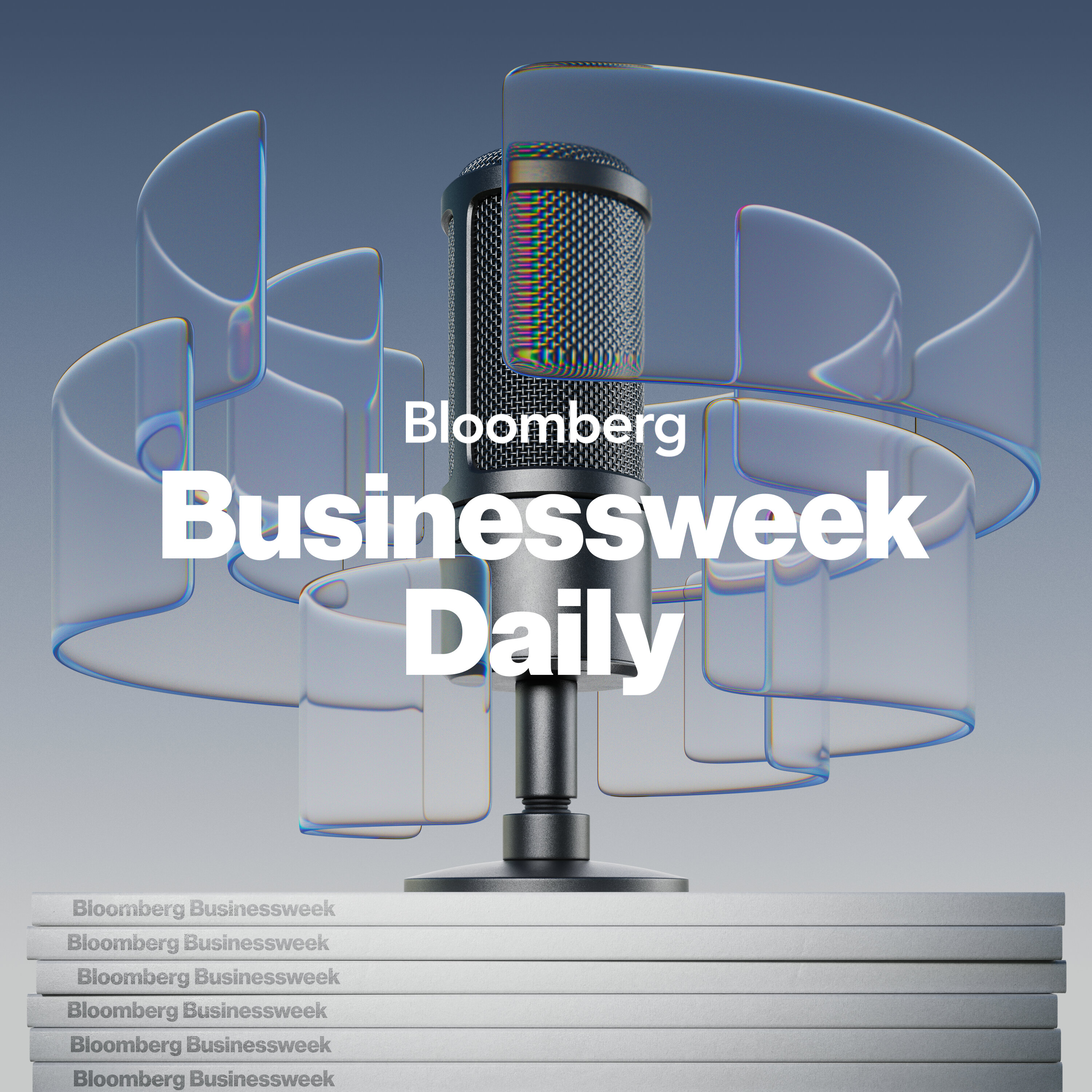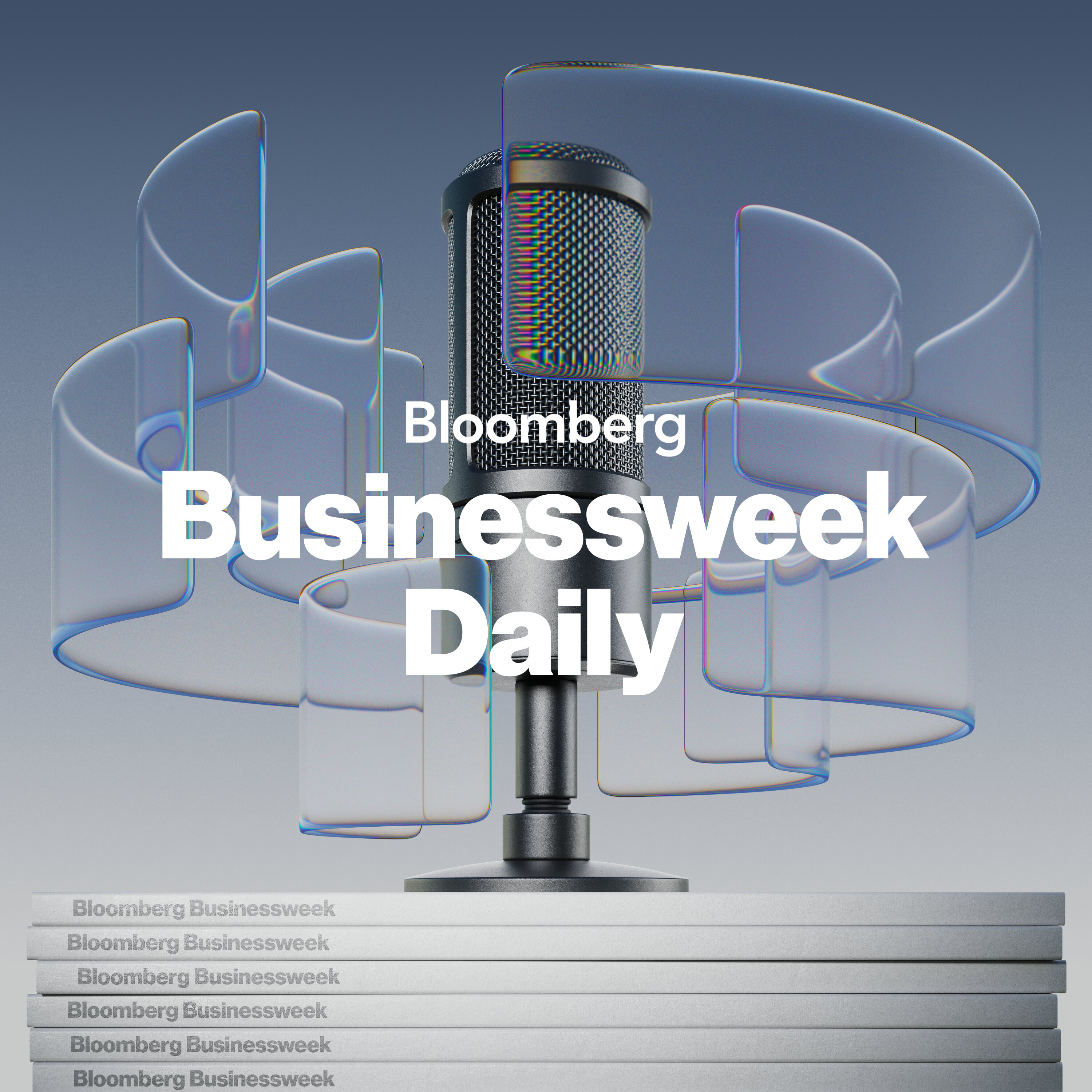
Deep Dive
Shownotes Transcript
This is an iHeart Podcast.
When you're with Amex Business Platinum, you have the card that helps businesses dream bigger. Get a flexible spending limit that adapts with your business and earn 1.5 times membership rewards points on select business purchases so you can stock up on what you need to take your business further and get rewarded for growing bigger. That's the powerful backing of American Express. Not all purchases will be approved. Terms apply. Learn more at AmericanExpress.com slash AmexBusiness.
At GSK, we believe that to get ahead of disease, you need to understand its root cause. And that's why we combine our deep understanding of immune science with cutting-edge technology. It helps us to create targeted therapies that match the right treatment to the right patient, transforming the lives of millions. By uniting science, technology, and talent, we work tirelessly to get ahead of disease together. Visit gsk.com to discover more.
For enterprise organizations, managing all your food needs is a tall order. But with EasyCater, you get a single workplace food vendor with the tools and resources to make it easy, giving teams across your organization an easy way to order from a huge variety of restaurants, all on one platform. All while consolidating your corporate food spend so you can control costs, streamlining billing and payment and simplifying reporting.
EasyCater, your business tool for food. To learn more, visit EasyCater.com slash podcast. Bloomberg Audio Studios, podcasts, radio, news. This is Bloomberg Business Week with Carol Masser and Tim Stenevek on Bloomberg Radio. It is Pride Month. And this story, I did not hear about Carol until doing research for this next interview.
Over in Europe, the mayor of Budapest vowed to ignore a police decision to ban the city's annual Pride parade, setting up a showdown with nationalist Prime Minister Viktor Orban. Police cited a recently approved law cracking down on LGBTQ public events for banning the June 28th parade, this according to a statement on Thursday. The decision followed the mayor's attempt to circumvent an earlier ban by helping to organize the parade under the capital's authority.
So the idea of pride month and everything happening with pride month and the pullback that we've seen from companies,
Not just happening here in the U.S. No, you bring out a good point. A survey of corporate execs revealed that two in five were scaling back Pride Month engagement this year, leaving organizers scrambling for funds. And then back in May, New York City Pride announced it was looking at a $750,000 budget shortfall and launched a community fundraising campaign to keep the event free to attend. There's a lot going on here.
Yeah, Jenny Glazer is all over it. Jenny, CEO of the nonprofit think tank CokeWool. Jenny joins us from Brooklyn. Jenny, this is not surprising to you. I could see you nodding as we were reading this. CokeWool, though, out with a new report. Pride under pressure. This is not necessarily a new phenomenon this year that we've seen this kind of happening over the last couple of years. What did you find in the survey?
Well, we've really found that safety isn't guaranteed anymore, not even at work. We found that 21% of LGBTQ+ professionals in the U.S. say that they or their families have been harmed by rising hate crimes. That fear doesn't stop at the door. It affects how people live, where they work, and whether they feel safe to be themselves.
One lesbian professional in South Africa told us she hides indoors when she visits her hometown. She said, going outside, you're just going to get 10 comments telling you that you're going to hell or worse. What we're finding is the backlash isn't staying outside the office. It's walking in the door. Why did you feel like you needed to do this report? Because LGBTQ plus inclusion affects more people than you think.
Globally, 9% of adults identify as LGBTQ+, and nearly half non-LGBTQ+ professionals have a close friend or family member in the community. That means nearly one in two workers are directly invested in how LGBTQ+ people are treated.
And these professionals cut across race, caste, class, gender, disability, and more. Inclusion for this group isn't about checking a box. It's about understanding how a culture really works. Jenny, why do you think we're seeing such a pushback?
in America when it comes to this issue. And I think it's safe to say when you look at political elections, certainly the presidential, you know, half of America seems to feel one way and half of America seems to feel another way. So let's be careful about lopping everybody together, right? But why did we get to this point? I think we saw in our research that there was a sense of some of this being performative.
And I think people were really asking, are systems really ready to respond? And we're finding in our data, are systems really ready to respond to bias, not just promote diversity? So we're really thinking about this as people in various parts of the country need to
navigate what's happening based on laws, context, et cetera. It's very complicated. If we were to think about acceptance as a chart or on this spectrum, and we see things getting worse right now around the world, where did things peak? When were they best? Or is that the wrong way to look at it?
Well, we did this report nearly 10 years ago, and it's very interesting to think about what the spectrum is.
we really tried to think about what's changed in these past 10 years. And I think we used to think we want to make it possible. So with an optimistic point of view that everyone can come and be their authentic selves at work, that's not showing up right now. And so we're really trying to think about how do we help a
leaders and individuals to really create belonging at work so that people can work productively as teams right now. I've got to say, I walked in today and there was a big sign acknowledging Pride Month and Pride here at Bloomberg.
We've had conversations, Tim and I, with various business leaders who say we're still going to do what we want to do, but we're just not going to talk about it a lot. But are companies or the corporate community, are they failing the LGBTQ community right now in some ways?
So we work with hundreds of Fortune 500 companies who are global multinationals. And what we're seeing actually is 84% of our members are doing what we call above ground, below ground, meaning they might be
And one of the reasons why they're scrubbing is to protect employees, because there is a lot of attention paid on companies and it creates unintended consequences for employees.
So they've really tried to think and be conservative about what's out there publicly. But they're thinking the long game. They know that creating conditions for employees to thrive at work, that people can be who they are, that they have health insurance, they can care for their loved ones. That's just a basic need that people need no matter where you are. So we're finding that investment and focus hasn't changed. But a slippery slope when you talk about people scrubbing, right?
You know, and not necessarily wanting to be identified with certain policies. It just makes me think, okay, then what's the next step, right? Yeah. If the idea is not to draw attention to yourself...
you know, it's like, where do you ultimately draw the line? It's an interesting conversation to be having in a country where we so prize and value freedom of speech and freedom of thought and freedom of action, as long as you're not harming or hurting, you know, others. And so it's an interesting moment in time.
It is. And keep in mind that this is the U.S. we're talking about right now throughout the world. Again, we work with global multinationals, a third of whom are headquartered outside of the U.S. It's a very different conversation. So in the U.S., I don't think they're scrubbing to curtail, but I think they're really trying to think about how do we protect employees in this moment and
And there is a lot of uncertainty and complexity. So I have a feeling over time, we'll see companies come out with clearer language messaging that's more about what is the evolution of how we want to drive inclusion. So I'm seeing behind the scenes that those things are forthcoming.
Jenny, good to catch up with you. Thanks for joining us on this Friday. Do appreciate it. Jenny Glazer, the CEO of the nonprofit think tank CokeWool, joining us from Brooklyn.
For enterprise organizations, managing all your food needs is a tall order. But with EasyCater, you get a single workplace food vendor with the tools and resources to make it easy, giving teams across your organization an easy way to order from a huge variety of restaurants, all on one platform. All while consolidating your corporate food spend so you can control costs, streamlining billing and payment and simplifying reporting.
EasyCater, your business tool for food. To learn more, visit easycater.com slash podcast. How can you grow your business from idea to industry leader? Bring your vision to life with smart business buying tools and technology from Amazon Business.
From fast, free shipping to in-depth buying insights and automated purchase approvals, they deliver everything you need to achieve your goals. It's not easy to stand out from the crowd. Simplify how you stock up to get ahead. Go to AmazonBusiness.com for support. AI is redefining what's possible for your business. With more unique challenges to solve and higher stakes than ever, Microsoft helps you stay ahead.
Our trustworthy AI tools and guidance can empower leaders like you to drive greater impact. And with Azure's simplified platform management, we're helping businesses go further, faster, unlocking up to 150% improved output. Whatever challenge comes next, let Microsoft help you keep pushing forward. For more details, visit microsoft.com slash challengers. This is an iHeart Podcast. ♪
